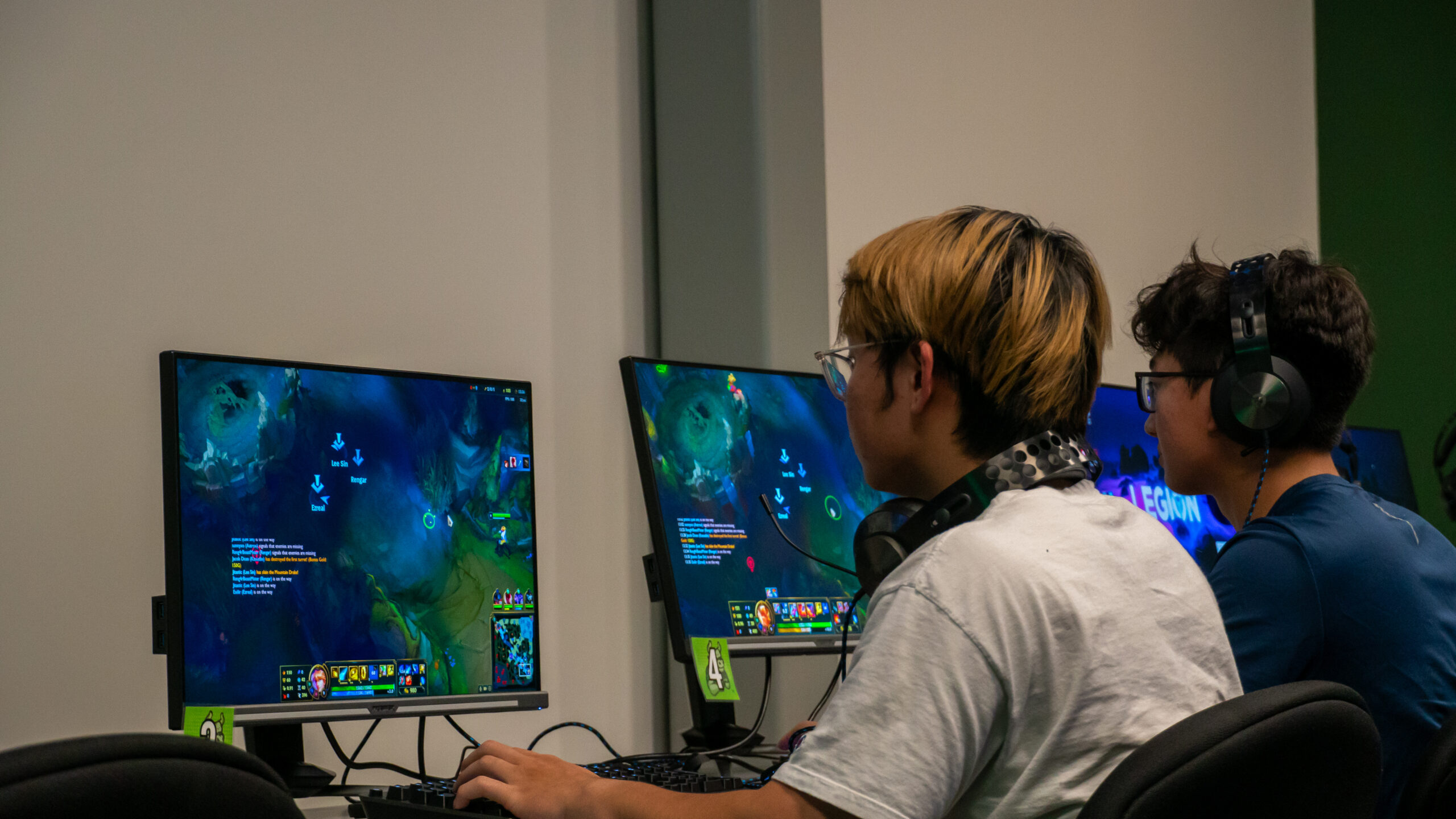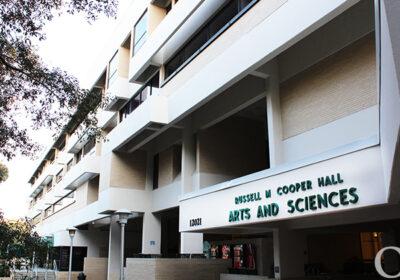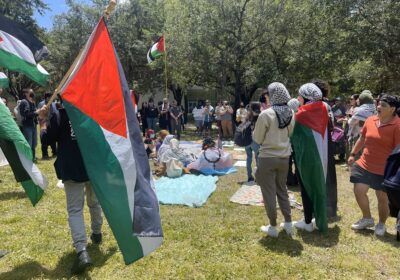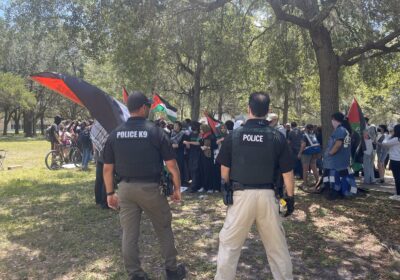Temporary esports lab opens at Tampa campus, permanent lab to open fall 2024

The temporary Esports Living Lab (ELL) opened on Sept. 11 at the FIT. The 900-square-foot lab will serve as a precursor to the upcoming permanent lab of the same name set to open in 2024.
Open from 5-11 p.m. Monday through Friday, the temporary ELL is stocked with 16 monitors, headsets and microphones as well as a series of pre-downloaded games such as Valorant, Rocket League and League of Legends, according to esport coordinator Andrew Ross.
Once the permanent ELL opens in fall next year, the temporary ELL will be discontinued.
“It’s an opportunity to allow students a space to socialize, to congregate to play video games and have fun, and make new friends. Having a centralized space on campus where students can feel welcome, feel safe and come play their favorite game is really important for the student body,” Ross said.
After delaying the original opening date of spring 2022 and an indefinite delay announced in November 2022, construction on the permanent ELL should begin by the end of the semester in room 005 of the USF Recreation and Wellness Center, Ross said.
The permanent lab will have three rooms: an open area with 40 PCs for recreational use by all students, a private gaming suite exclusively for esports championships and a broadcasting and design room for students covering live esports events.
The open area will also offer XBoxes, PlayStations, Nintendo Switches, Wiis and will have two TVs mounted on walls opposing each other to allow for real-time competition, Ross said.
“An in-person lab for us is huge. It’s something that has been in the works since the inception of the [esports] program. And we have done the best and I think we’ve actually really grown and thrived online with the resources that we have had. But this will really be that next step,” Ross said.
The temporary esports lab was funded using the $156,000 tech fee allotted to the esports program, which enabled the purchase of the 16 monitors, headsets and microphones as well as five monitors for the competitive practice space in the USF Recreation and Wellness Center.
Although the initial estimate of the 2700-square-foot permanent ELL was approximately $550,000 in 2019, the post-COVID inflation rates have increased the price to $1.1 million, Ross said. These expenses will cover the remodeling of the dance studio with the gaming equipment necessary for both recreational and competitive success, according to Ross.
The growing popularity of esports was hastened by the COVID-19 pandemic in which options for communication and engagement were seriously limited, according to Ross.
“We weren’t running sports in person. We weren’t running programs and activities and clubs in person. So esports was the one thing that was operational during the pandemic, and so that really brought students together and provided a chance for students to continue to connect with each other,” Ross said.
The esports lab also breaks down the financial barriers that exist within the gaming and esports world where participation and skill is determined by access to functioning equipment, according to Ross. Coupled with the distance from home gaming setups, students are often at a loss when dorming which presents a need for in-person gaming facilities, Ross said.
The efforts of the esports program started in fall 2019 culminated in the 11 esports clubs and 23 registered, competitive esports teams USF has to offer.
The advantages of the ELL extend to practical purposes as well. As esports are prevalent in East Asian culture, the lab could be used as a tool for interdisciplinary engagement for the Korean culture class, according to Ross. Additionally, the lab would be integral to the Business of Esports class offered annually in the spring.
“It’s multifunctional,” Ross said. “It serves our competition, our competitive needs with our clubs. It serves our community by being a space breaking down those financial barriers for students being a community space for people to engage and interact. It serves as an academic space with the connection with the business of esports class.”
Ross mentioned the possibility of academic scholarships becoming available to highschool esports athletes to play at the collegiate level with USF, reflecting the evolving nature of the scholastic community.
“Our goal is for this space to serve the community. You don’t have to be good at gaming to come play here. You don’t have to be on a competitive team to come play here. If you like to queue up with your friends, you can come do that here. It’s a space that serves everybody, not just competitive gamers,” Ross said.







